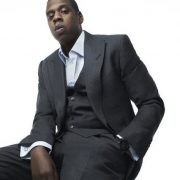Not all heroes wear capes, in fact, sometimes heroes wear shiny spandex underwear and don a signature white streak in their hair. Such was the case with professional wrestler “Sputnik” Monroe, who used civil disobedience and market incentives to desegregate wrestling in the Jim Crow South.
The Grand Tradition
Professional wrestling is deeply rooted in southern culture. Before televisions became a commodity that most Americans could afford, people had to find unplugged ways of keeping each other entertained.
For those whose economic situations did not permit weekends spent out at the theater or dining in upscale restaurants, local wrestling was the place to be. Every weekend, local auditoriums would transform into wrestling venues with big rings in the center and folding chairs placed around for spectators.
In the days of segregation, these seats were reserved for “white” audience members, while everyone else had to sit in the tiny upper balcony in a section nicknamed, “the crow’s nest.”
The Heel becomes the Hero
Before wrestling became the television sensation it is today, every region of the country had its own territory with its own cast of loud characters and dramatic storylines.
A wrestler’s compensation was directly tied to the popularity of the character they portrayed. If a wrestler wanted to make more money, they had to prove that their character could sell tickets and fill seats.
Traditionally, there are two types of wrestling characters: the hero and the heel. For every hero, there is a heel meant to stir up the crowd and boost the hero’s image.
Legendary heel, Sputnik Monroe, decided to make his character a hero to the black community, which in the heart of the segregated south was sure to rile up the audience.
Wrestlers take their character roles seriously. Since many lived in communities among their fans, wrestlers were required by their promoters to maintain their character personas at all times. So that is exactly what Monroe did.
After garnering a reputation for hanging around with the black community, an older lady, angered by his disregard for segregation, gave him the name “Sputnik.”
Meant to offend his honor and accuse him of having communist sympathies during the red scare, this nickname was intended to be an insult. But rather than getting upset, Monroe adopted the name as his wrestling moniker.
Civil Disobedience
Creating a stir in every town he passed through, “Sputnik Monroe” became a legend, drawing huge crowds wherever he went.
In these days, it was customary for wrestlers to drink with their fans after a match had ended. Since the majority of Monroe’s fans were black, segregation laws forbid him from fraternizing with his admirers, but he did it anyway.
For a six-month period, Monroe spent every night drinking with his fans in bars he wasn’t legally allowed to patronize. Every few weeks, Monroe was summoned to court and required to pay a fine for breaking Jim Crow Laws.
Holding true to his public image, Monroe made history by hiring black attorney Russell Sugarmon Jr. to defend him in court.
The more Monroe defied segregation laws, the bigger his crowds grew. Soon, it became routine to see thousands of people lined up outside Ellis Auditorium, each waiting for their chance to see Sputnik Monroe in person.
The promoters were not as thrilled about this situation as Monroe was. While they liked the idea of selling more tickets, there was one problem: Monroe’s fans were all black, there couldn’t possibly be enough room in the “crow’s nest” to accommodate the whole crowd. Initially, the promoters refused to accommodate Monroe’s fans, but Sputnik Monroe was not going to go down without a fight.
Money > Tradition
Monroe could not understand why these men would turn down an opportunity to earn extra money just to satisfy an outdated status quo. He took matters into his own hands and began bribing venue employees to let more of his black fans in the venue.
This eventually put the ushers in an awkward situation. As the “crow’s nest” ran out of space, the ushers had to choose between enforcing segregation laws or disappointing the great Sputnik Monroe by refusing to seat his fans.
Unable to turn down the opportunity to both impress Monroe and earn extra money, the ushers began seating black fans among the white audience members.
When the promoters realized what was happening, they demanded he stop his illegal behavior.
Understanding the value and worth he brought to his promoters, Monroe knew the show could not go on without him. He belligerently reminded his promoters of the crowds he was attracting and the money he was bringing in and refused to go on unless they agreed to let the black fans sit wherever they wanted.
Monroe recounted this situation by saying:
“There used to be a couple of thousand blacks outside wanting in, so I would tell management I’d be cutting out if they don’t let my black friends in. I had the power because I’m selling out the place, the first guy that ever did, and they sure wanted the revenue.”
While Sputnik Monroe always maintained that money was his main motivator behind his actions, he is single-handedly responsible for the desegregation of Ellis Auditorium, making it the first integrated public gathering place in the Jim Crow south.













